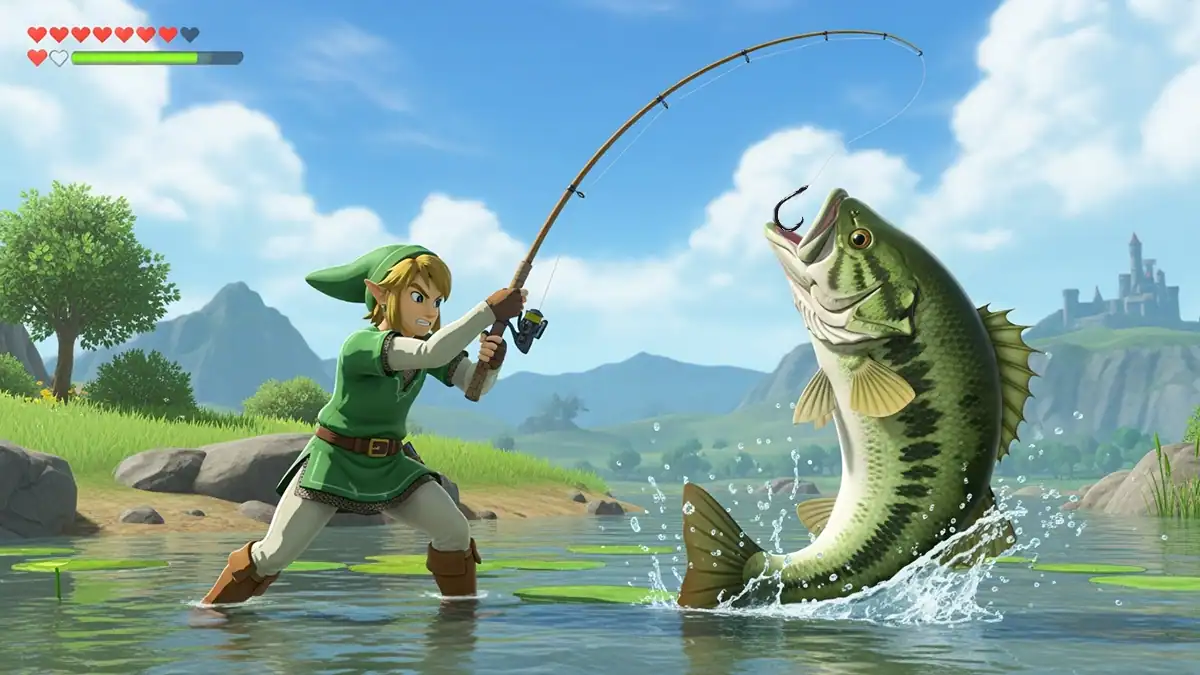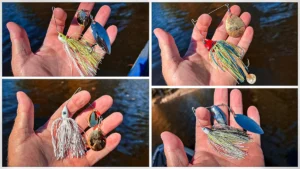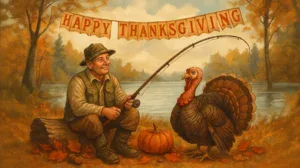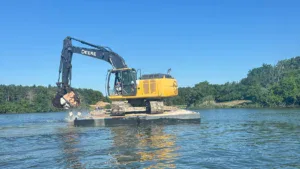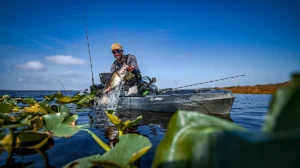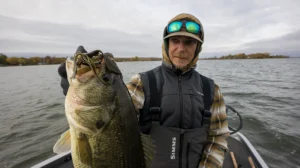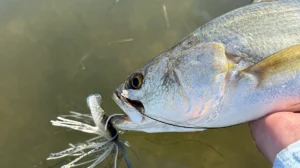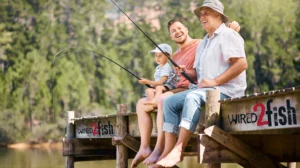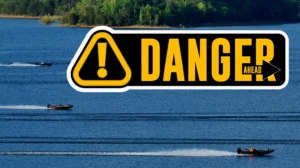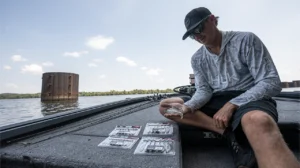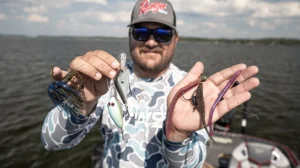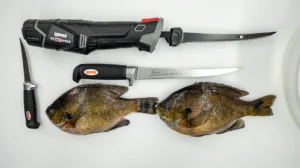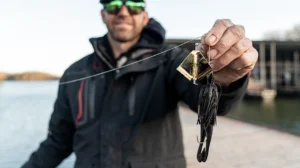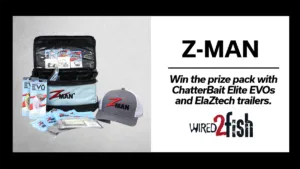Fishing is a unique and interesting activity. There is literally no wrong way to do it. After all the tutorials, seminars, shows, workshops, training sessions and attempts to break fishing down analytically and scientifically, I’ve seen the wildest ideas work to fool fish into taking an artificial lure. Does how you hook your plastic worm matter when it comes to coaxing a bite from a largemouth bass? Sometimes. Other times, when fish are fired up, or if little to no fishing pressure exists, few things seem to matter other than having a hook tied on.
I’ve come a long way from tying my hooks with triple overhand knots. I’ve learned how to tie a Bimini twist to an Albright, and connect my braided line to a leader with technical knots like the FG. Learning along the way has been a journey. Early on in that learning curve I embraced the pursuit of knowledge. I embraced having a mind of my own and finding creative solutions to my fishing problems.
Consider how many decisions you make through the course of a fishing day. They’re endless. Who am I going to invite? What am I going to target? Where am I spending my day? Why am I even doing this? As you start to tally the decisions, consider how many of those decisions are based around solving problems.
Problem Solving When Fishing
Each day of fishing is approached as a series of problems I need to solve. It becomes a type of game in a way. My creativity is challenged constantly whether I’m trying to maximize my fishing time, suffer fewer backlashes, fumble less casts to a shallow cruising bass, or rummaging through my tackle box looking for the perfect lure.
My mindset is different from most anglers I trade ideas with. I once spoke with a friend of mine, outdoor writer and recent glide bait enthusiast, Joe Cermele. He wrote an entire article on this approach titled, “California Dreaming: How Nintendo Led Oliver Ngy to Big-Bass Superstardom.” I was of the original Nintendo gaming era. I’m talking about Duck Hunt, Super Mario Bros and the Legend of Zelda. The gameplay of the time taught me to explore every brick, every tree, every possibility to unlock something within that game. It was many years later while fishing with Joe in Jersey that I realized how much that early gaming translated into my fishing. I can’t help but explore every potential way to solve fishing problems until something shows itself to work.
Taking it back to the 1990s, fishing information was limited to TV shows, magazine articles, and word of mouth. I’d go to the public library and rarely find a bass fishing specific book that wasn’t already outdated by a decade or two. I’d like to see the reaction of the YouTube generation as they’re forced to look up books via the Dewey Decimal System. They’d find out the closest thing to their search for “How to be a swimbait superstar” landed them in an Encyclopedia with a Wikipedia like breakdown on “fishing.” That’s all I had to work with. But lack of resources emboldens resourcefulness. I had no other choice than to suck it up and figure things out.
When I would come across a tidbit of insight, like confirmation of a lure that was effective for another angler, I’d analyze the why versus the what. Why was this particular lure working better than something else? Was it as simple as the color? Was it the sink rate or ability to stall in the water column? Why has always proven to be more impactful for me than the what. As I started to piece together more and more whys, I found myself being able to formulate my own decisions based on that set of answers.
I don’t really care what your hotspot is, because if I can figure out the why, I can simply go find my own spot. Is it next to deep water access and a feeding flat with a transition from sand to rock? Sweet, let’s use our electronics and side scan looking for that similar scenario.
Putting Together the Puzzle Pieces
A huge piece of the fishing puzzle I’m always perplexed to encounter is the lack of fundamental biological knowledge of the freshwater or saltwater systems we explore. What hope would I have as a younger, less-experienced angler if I didn’t have that baseline information? Little to none. I benefited from my early nerdom; the sciences have always fascinated me. Biological processes and how they lined up with the seasons, sun, and moon. How storms affected these processes and how they affected my fishing was intriguing.
As we gain more experience and try to suck a little less at fishing, we can hopefully begin to identify these patterns as the years and natural cycles continue. I can start to make better decisions of the who, what, where and why. Become a Recreational Biologist — one of my favorite Big Bass Dreams merchandise themes — and expose yourself to a whole world you can dive deep into. It will ultimately make you a better angler and decision maker. Garner as much information as you can to help drive the decision-making process; think differently than the average angler if you’re attempting to be better than average.
One of the ways I’ve benefited as a bass-oriented angler is my exposure to other genres and species of fish. I’ve been saltwater fishing off the Southern California coast almost as long as I’ve been trying to catch a bass out of Lake Perris or Castaic. There was so much crossover in those early years between inshore bass fishing using freshwater tackle and calico bass tackle. I used to fish big swimbaits before the swimbait industry existed as we know it today. I still use gear and lures built with freshwater- or saltwater-specific applications completely differently than what’s stated on the back of the packaging. I wasn’t limited by somebody else’s wording from the marketing department.
I’m still discovering awesome lures that freshwater bass haven’t even considered since they have a saltwater label on them (check out my article on “Unconventional Tactics for Big Bass”). I’m also taking a lot of the finesse and technical experience I’ve gained from freshwater bass angling to the saltwater scene. All of this is stemming from thinking creatively and geeking out on finding new applications, not following old ones.
Don’t Be Influenced
Looking past the same circle of information was also a key step in my growth as an angler. There are a lot of new fishermen who surround themselves with others that automatically have more experience than they do. However, experience with little to no success is different from a body of work that showcases consistency in the fish catching department.
Falling into a follow the leader mentality might trap your growth as an angler. Surrounding yourself with sources of good fishing knowledge in 2025 is so much easier than it used to be. Attend a seminar on a topic of interest at a fishing expo. Sign up for a tutorial online from a seasoned and accomplished professional like Brian Latimer. Get off the Facebook groups filled with regurgitated information from somebody holding a 3-pounder. There’s plenty of the blind following the blind out there.
I want to remind you that fishing for me has been an ongoing learning process now spanning three decades. It’s a slow but intense burn. I’ve been able to maintain this high level of obsessiveness through discovery. That discovery, that “EUREKA!” moment, is what keeps my passion burning. If you get caught up with the hero shots and the end results without the process, you may find yourself burning out quickly. Here’s a friendly reminder to have a mind of your own, find creative solutions to your fishing scenarios, and enjoy the nonstop ride.
